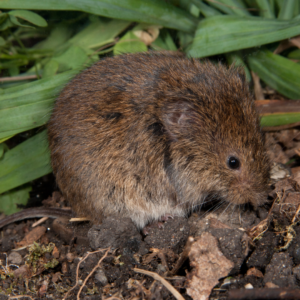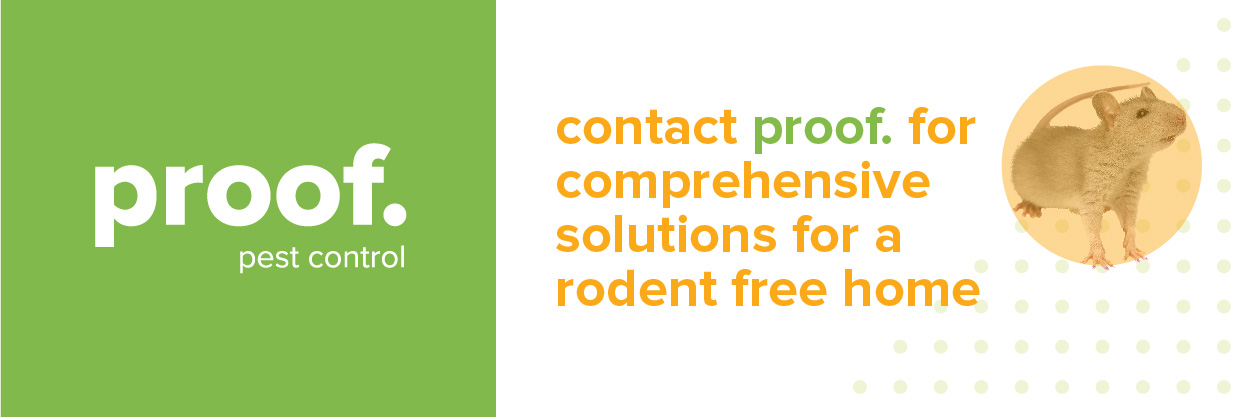Are your pristine garden beds suddenly marred by mysterious tunnels and unsightly surface runways? If so, you might have unwelcome visitors– voles. These small, mouse-like rodents can wreak havoc on your yard throughout the seasons.
In Colorado Springs’s moist and fertile soil, voles find an ideal habitat for tunneling and foraging for their primary food source: earthworms, insects, and grubs. Check out our blog to learn more about common voles in Colorado Springs and how to prevent them with proof. Pest Control.
Meadow Voles in Colorado Springs
While Colorado Springs boasts eight species of voles, there’s one troublemaker that stands out among residents: the meadow vole.
With their stout bodies, short tails, and keen eyes, meadow voles are perfectly suited for life in grassy habitats like fields, meadows, and marshes. These crafty rodents are experts at tunneling, crafting deep underground burrows to escape predators and the elements.
As herbivores, they munch on a variety of grasses, seeds, and plant roots, regulating plant populations and nutrient cycling. However, their hearty appetites pose problems in agriculture areas as they nibble on crops and garden plants. Their feeding and tunneling habits can disrupt soil structure, causing erosion and vegetation damage.
Meadow voles are tough to keep in check; some females can have several litters in a single year. These population fluctuations can throw off predator numbers and upset the balance of the ecosystem, which can spell serious trouble for farmers and the local environment.
The Impact of Voles in Colorado Springs
While voles might not seem like a big deal initially, their presence around Colorado Springs homes can cause trouble. Let’s examine how these critters can damage homes and create headaches nationwide.

Damage to Landscaping: Voles have voracious appetites and a tendency to feed on a variety of plant materials, including grasses, bulbs, roots, and ornamental plants. In residential areas, this can result in unsightly damage to lawns, flower beds, and garden areas. Voles may create extensive underground tunnels and surface runways as they forage for food, leaving behind a trail of destruction in their wake.
Garden and Crop Damage: For homeowners who cultivate gardens or grow crops on their property, voles can be particularly problematic. These rodents can decimate vegetable gardens, fruit trees, and ornamental shrubs, causing significant financial losses and frustration for homeowners. Voles may nibble on the roots, stems, and foliage of plants, leading to stunted growth, wilted foliage, and even plant death in severe cases.
Structural Damage: While voles in Colorado Springs primarily dwell outdoors, they may occasionally find their way into homes through small cracks, gaps, or openings in the foundation or walls. Once inside, they can cause structural damage by gnawing on wood, insulation, electrical wiring, and other building materials. This not only compromises the integrity of the home but also poses fire hazards and safety risks for occupants.
Transmission of Diseases: While less common than with other rodents like mice and rats, voles can still carry and transmit certain diseases to humans and pets. These may include hantavirus, tularemia, and leptospirosis, although the risk of transmission is relatively low compared to other rodents. Nevertheless, homeowners should exercise caution when handling or disposing of vole-infested materials to minimize the risk of disease transmission.
Population Growth and Infestation: Voles are prolific breeders, with females capable of producing multiple litters of offspring each year. In favorable conditions, vole populations can rapidly increase, leading to infestations that are difficult to control. As vole populations expand, their impact on homes and surrounding landscapes may become more pronounced, requiring prompt and effective intervention to mitigate damage and prevent further spread.
Preventing Voles in Colorado Springs with Our Pest Control Services
When it comes to dealing with voles in Colorado Springs, prevention is critical. However, if voles have already taken up residence on your property, proactive intervention is necessary to eliminate them effectively. At proof., we offer comprehensive vole control services to prevent infestations and eradicate existing populations. Here’s how we can help:
Preventive Measures
- Habitat Modification: By modifying the landscape and eliminating conducive conditions for vole habitation, you can discourage these rodents from taking up residence on your property. We can recommend removing dense vegetation, clutter, and debris around the home and minimizing areas of dense ground cover where voles may hide and nest.
- Vegetation Management: Since voles are herbivores that feed on various plant materials, different vegetation management strategies may help in making your landscape less attractive to these pests. This may involve pruning shrubs and trees, mowing grass regularly, and removing overgrown vegetation that provides cover and food sources for voles.
Professional Pest Control
At proof., we understand the challenges posed by vole infestations and are committed to providing effective and environmentally responsible solutions for homeowners in Colorado Springs.
Whether you’re looking to prevent voles in Colorado Springs or eliminate existing populations, our team of experienced pest control specialists is here to help. Contact us today to schedule a consultation and take the first step towards a vole-free home!


